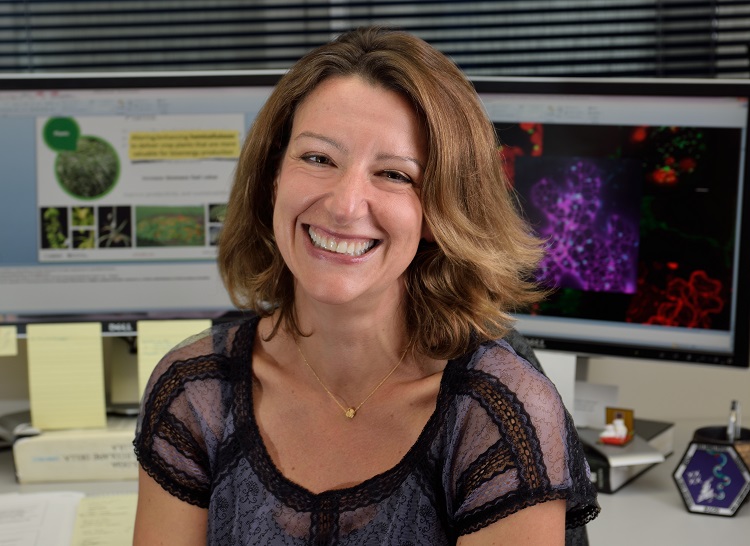
5 Quick Questions for Dr. Brandizzi
Courtney Overbey
Wednesday, September 30, 2020
Want to know how the MTRAC program is helping commercialization in the AgBio industry? Dr. Federica Brandizzi, university researcher from Michigan State University, shares how funding support transforms her research from discoveries to crops.

What is the focus of your research?
Our research focuses on the activity of tiny biological factories that work inside plant cells. Collectively, these factories are called the secretory pathway and are responsible for the production of plants constituents, which ultimately make up most of the food and other materials, including precursors for biofuels, that we can harvest from plants. The secretory pathway also equips plants with means to resist environmental stress. Overall, our work aims to improve the biosynthetic capacity of the secretory pathway as well as modulate some of the features of its products for increasing plants’ productivity and resilience to stress. By improving plants productivity and resiliency, our research contributes to the sustainable production of materials useful for humans. Several aspects of the secretory pathways are conserved, which makes our research also relevant to improve human health through translational knowledge. We work with model plant species such as the weed Arabidopsis and the grass Brachypodium and translate our findings into crops, such as alfalfa, sorghum and soybean.
How is your research impacting Michigan’s AgBio industry?
Our research is providing new and creative approaches for plant improvement. We utilize advanced genomics techniques to tackle important biological questions to provide workable answers and implementable solutions. We are working with crops, such as alfalfa and soybean, that are important for Michigan’s AgBio industry. Furthermore, through our research activities we are training a strong, Michigan-based cohort of scientists to lead plant-based research in the future.
What drew you to take up research projects at Michigan State University?
For a plant scientist, Michigan State University is the place to be. World-class plant scientists work or have been “produced” by Michigan State University. The university continues to attract enthusiastic students and personnel by providing a thriving research and mentoring environment.
What significance did the Michigan Translational Research and Commercialization (MTRAC) program, funded in part by the Michigan Economic Development Corporation, play in the commercialization of your research?
For scientists, it is often difficult to see how fundamental research can be commercialized. MTRAC and MEDC have provided intellectual and funding support to translate our discoveries into crops. Thanks to its well-structured mentoring, the MTRAC program has allowed us to explore industry-relevant questions and helped us to understand the industry standards to license our technologies, while maintaining a sharp focus on commercialization of sustainable biomaterials.
What advice do you have for female university researchers?
There are so many pieces of advice that can be given to female university researchers. Based on my experience, I would summarize my advice as to always embrace the challenge and trust in yourself, no matter what. Challenges are what makes you grow, but you can only grow if you trust in yourself.
Contact Us
To contact a business development specialist, click here or call 1.888.522.0103.